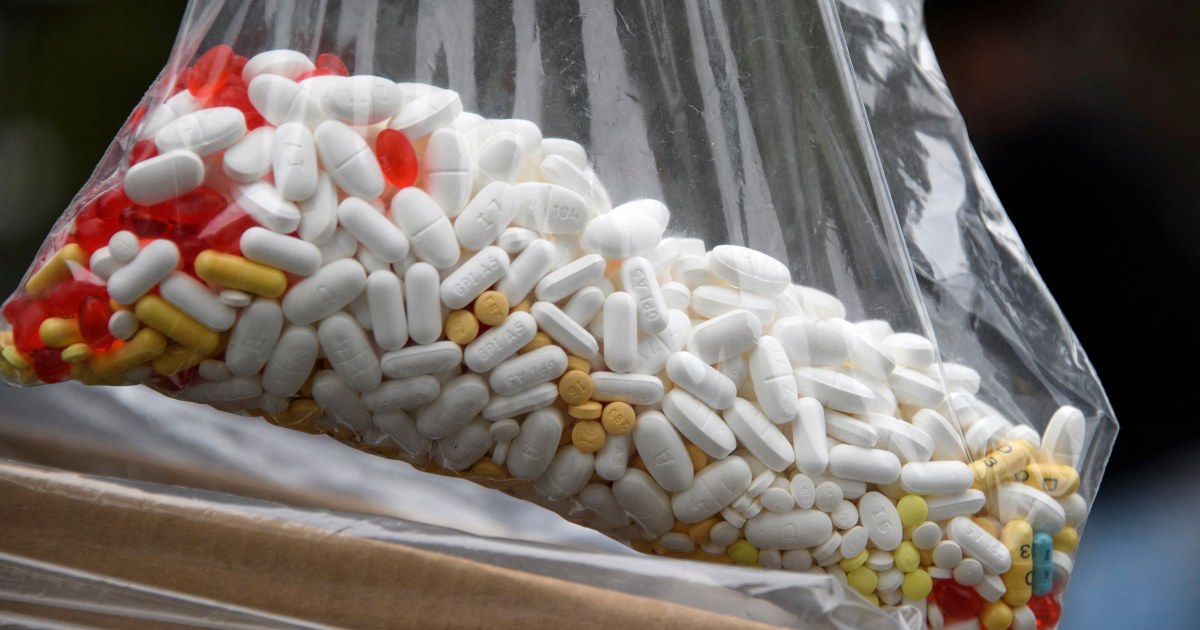
When the Centers for Disease Control and Prevention recently revealed provisional data showing that more than 100,000 people died of overdoses in the 12 months that ended in April, President Joe Biden promised to take action, saying, “We cannot overlook this epidemic of loss, which has touched families and communities across the country.” However, not all action is good action — and one of the steps the administration is taking threatens to deepen the problem.
I understand the urge to take serious steps to prevent overdoses: My own sister died of a fentanyl and heroin overdose last year.
In September, the Biden administration urged Congress to make permanent a failed Trump-era policy that could further criminalize and endanger those who use drugs: a classwide ban on fentanyl analogs (drugs that are molecularly similar to fentanyl), which is set to expire Jan. 28. Almost two-thirds of drug overdose deaths in the provisional data involved synthetic opioids (including fentanyl and its analogs). That’s 64,178 deaths, compared to about 36,000 in 2019 and about 31,000 in 2018.
A Senate bill introduced by Rob Portman, R-Ohio, and Joe Manchin, D-W.Va., also proposes to make the classification permanent, as does a similar bill in the House. The classwide classification policy, implemented in 2018, places fentanyl analogs in Schedule I, a classification for substances that are most strictly prohibited at the federal level.
Nearly 100 civil rights groups have voiced major objections to Biden’s recommendations, for good reason: A classwide ban would not prevent overdose deaths, and it would exacerbate racist criminalization practices — while shifting attention away from much-needed harm reduction strategies that actually save people’s lives.
I understand the urge to take serious steps to prevent overdoses: My own sister died of a fentanyl and heroin overdose last year. However, intensifying prohibition is not the way. Since the categorization of fentanyl analogs, prosecutions have predictably risen. But since 2018, overdoses involving fentanyl and its analogs have not decreased — they have risen drastically.
Heightened criminalization discourages people from seeking emergency medical help in the event of overdoses because of fear of arrest. This barrier to emergency assistance further threatens the lives of people who use drugs.
In addition, harsh prosecution got us into this problem. Prosecutors’ targeting of fentanyl provided incentives for producers to develop new psychoactive substances (in this case, analogs) that produced effects similar to those of fentanyl but were different enough to evade law enforcement and prosecution. With new substances entering underground markets, consumers have less information about what they are consuming, making it even harder to stay safe. Continuing this cycle is no route to saving lives.
Instead of expanding criminalization, we must dramatically expand programs that help people survive no matter which drugs they use.
Meanwhile, fentanyl analogs make up a wide class of drugs, including some that are actually less potent than fentanyl (a Schedule II drug), according to the CDC. Even by the criminal legal system’s own logic, lumping this varied group of drugs into Schedule I based on their “danger” level — potentially resulting in severe penalties for substances with certain molecular structures, regardless of their effects — does not make sense.
The Biden administration has responded to advocates’ criticisms by recommending against quantity-based mandatory minimum sentences (in which judges must impose certain minimum sentences based on the amount of drugs involved in offenses) for some crimes related to fentanyl analogs.
Yet the administration states that cases involving death or severe injury should not be exempt from mandatory minimums. This exception ignores the fact that prosecutions for “drug-induced homicide” have not decreased overdoses, as documented by the Drug Policy Alliance. Drug-induced homicide prosecutions discourage people from seeking emergency help, and they have fallen heavily on Black communities and other communities of color.
Five decades of the drug war should prove to us that increasing criminalization does not prevent drug-related harm.
Indeed, the criminalization of certain drugs has broadly affected people of color. These racial disparities are already evident when it comes to fentanyl analogs; among people sentenced for fentanyl analog-related offenses in 2019, 58.9 percent were Black, while only 30.7 percent were white. (Racial groups sell and buy illicit drugs at similar rates, according to an analysis by the Hamilton Project; the difference lies in who is targeted and convicted.)
I sympathize deeply with the impulse to do something — anything — to address the overdose crisis. Some families of people who have overdosed may want harsh punishment for those who sold their loved ones drugs, and I understand the desire for action in the face of a heartbreaking loss. But I know that criminalizing the people who sold my sister drugs would not bring her back. As a user of illicit drugs, she herself was arrested and incarcerated, which did not save her life, either.
Instead of expanding criminalization, we must dramatically expand programs that help people survive no matter which drugs they use. This would mean providing users with extensive access to drug checking to ensure purity, including fentanyl test strips (which allow users to dip a strip into water with a small amount of their drug of choice dissolved in it) — a quick and proven method frequently used at music festivals — and spectrometers (higher-level devices that can analyze the composition of drugs with great accuracy and precision). It would also mean broadly expanding availability of the overdose antidote naloxone and establishing supervised consumption sites staffed with people skilled in preventing overdose.
Ultimately, to work toward ending the overdose crisis along with the racist impacts of the drug war, full drug legalization will be necessary, so people who use drugs can have access to safe supply, with accurate information about the dosages, composition and effects of drugs. This should be undertaken in concert with reparations for communities most affected by criminalization policies. Simultaneously, if we care about the survival of those who use drugs, we should work toward ensuring they are able to access good housing, non-coercive health care and other necessities, which also play a role in preventing overdose.
Although the Biden administration insists that it supports harm reduction strategies, the classwide ban on fentanyl analogs is a step away from those priorities. Come January, Congress and the Biden administration should let this policy expire.
Five decades of the drug war should prove to us that increasing criminalization does not prevent drug-related harm. Instead, it worsens mass incarceration and drives drug users into hiding while more and more people die every year.
Source: | This article originally belongs to Nbcnews.com










